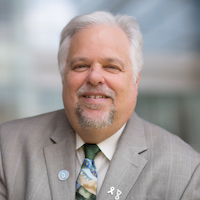UNC epidemiology department shares official history
March 9, 2018
Helping to establish a public health program for African-American students at North Carolina Central University. Educating Peace Corps volunteers on how to prevent and cure tuberculosis. Developing the core concepts and applications of social epidemiology.
These achievements are all part of the rich history of the Department of Epidemiology at the University of North Carolina at Chapel Hill, which today is part of the Gillings School of Global Public Health. The first half of the department’s history has been compiled in a new publication, available in both an online flipbook and a downloadable PDF format.

Dr. Andrew Olshan
“I am excited to present this account of the early years of the Department of Epidemiology,” said Andrew Olshan, PhD, Barbara Sorenson Hulka Distinguished Professor in Cancer Epidemiology and chair of the epidemiology department from 2006 to March 1, 2018. “The story begins in 1936 with the arrival of Dr. Milton J. Rosenau [a former professor of epidemiology who pushed for the creation of UNC’s School of Public Health] and covers the next 40 years until 1976. This first half of our history introduces many legends of epidemiology and shows the evolution of epidemiologic thinking and applications in North Carolina and abroad.”
Only a handful of epidemiology training programs existed in the United States when UNC offered its first epidemiology course. Over the years, the department was challenged by changes both in patterns of disease, from syphilis outbreaks to rising chronic illness, and in societal norms, from segregation to civil rights. Through it all, the department’s faculty members, research focus areas and student demographics adapted to reflect the times and best serve the public.
“Today, epidemiology graduates from the Gillings School are leaders in academia, government, industry, civil societies and professional organizations,” Olshan wrote in a foreword to the historical account. “Through research, teaching, collaboration and service, the department and its graduates have shaped academic and public health programs at a global scale. I invite current students, faculty members and alumni to get to know our department’s history and let it inspire you – as it does me.”
More historical resources from the Department of Epidemiology, including videos, interviews and skits, are available in an online repository.
The Department of Epidemiology extends special thanks to Victor Schoenbach, PhD, associate professor of epidemiology, and Judith Winkler, MEd, public communications specialist, for the considerable time and effort they put into compiling and writing this historical account.
Gillings School of Global Public Health contact: David Pesci, director of communications, (919) 962-2600 or dpesci@unc.edu
